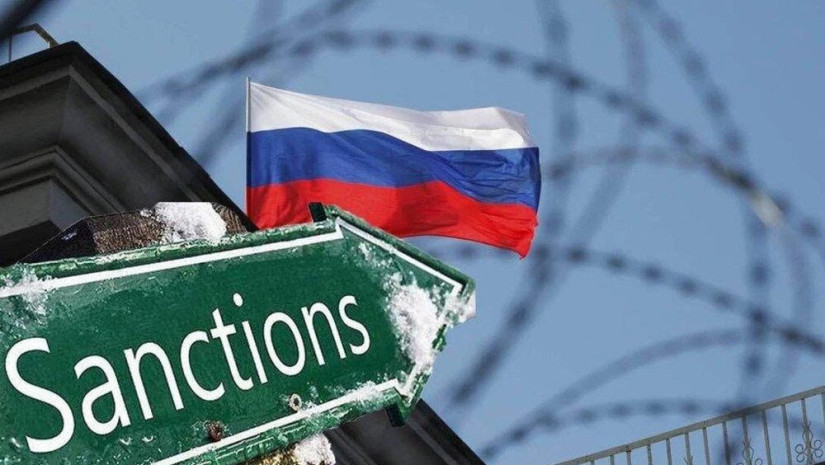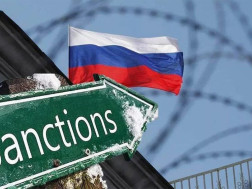The European Union is preparing a new round of sanctions against Russia that will target companies and countries that are considered to be helping the Kremlin evade the extensive list of penalties the bloc has imposed since February 2022.
Doing so will require the application of extraterritoriality, a contested legal principle that can enable the EU to sanction entities that fall outside its jurisdiction.
The radical move is driven by the imperative need to improve enforcement and crack down on circumvention, a tricky task after ten rounds of sanctions that cover an unprecedented range of economic sectors and products, such as microchips, trucks, banknotes, chemicals and luxury bags.
The draft designed by the European Commission was sent to member states on Friday and is expected to be further discussed by ambassadors during a meeting on Wednesday.
"This package focuses on the implementation of sanctions, their effectiveness and how to prevent them from being circumvented, and also on the goods that have been banned from exporting to Russia – preventing these goods from finding their way to Russia and its military-industrial complex," a European Commission spokesperson said on Monday, confirming media reports.
The spokesperson declined to comment on the proposal's substance, which is expected to be subject to intense negotiations over the coming weeks.
Brussels has grown increasingly concerned about a marked uptick of EU-made goods flowing to countries in the South Caucasus and Central Asian regions, which are suspected of being re-routed to Russia.
EU exports to China and Iran – two close allies of the Kremlin – are also under scrutiny, as well as trade exchanges with Turkey, a country that, despite being a NATO member, tries to pursue equidistant relations between Moscow and Kyiv.
Attention is being paid to products manufactured by European companies that are today prohibited from being sent to Russia because they can – directly or indirectly – support Russia's war machine, such as semiconductors, radars, drones, radio systems and other electronic components.
According to a report by the Financial Times, the Commission's draft proposal includes seven Chinese companies that are accused of selling equipment with potential military uses. Some of the listed firms are already under United States sanctions.
Making a move against China, the EU's largest trading partner in terms of goods, would represent a bold step in the bloc's foreign policy and would almost certainly unleash a furious response from Beijing at a time when EU-China relations are going through profound turbulence.
The principle of extraterritoriality has been used in the past, most notably in the case of US sanctions against Iran. In 2018, the administration of President Donald Trump decided to withdraw from the Iranian nuclear deal and impose a strategy of "maximum pressure" to re-impose the sanctions on the Teheran regime that have been previously lifted under the international accord.
Back then, extraterritoriality, also known as secondary sanctions, was used by the US authorities to penalise non-American companies that were still doing business with Iran. Fearing retaliation, many European firms pulled out of the Iranian market, despite being perfectly able to operate inside the country under EU law.
While Brussels criticised Washington during the Iranian dispute, it now appears poised to follow suit to ensure EU sanctions against Russia are effectively enforced and loopholes are closed down.
However, given the novelty of the step, the new package of sanctions – number 11th since February 2022 – is expected to undergo heated and protracted discussions among member states, some of which might fear a backlash effect if the bloc goes after Chinese companies.
EU sanctions require the unanimity of all 27 member states, Euronews reports.
















